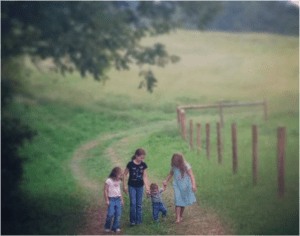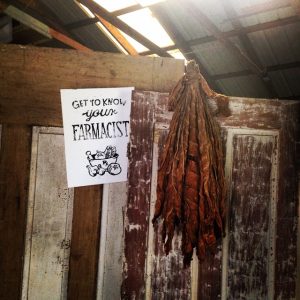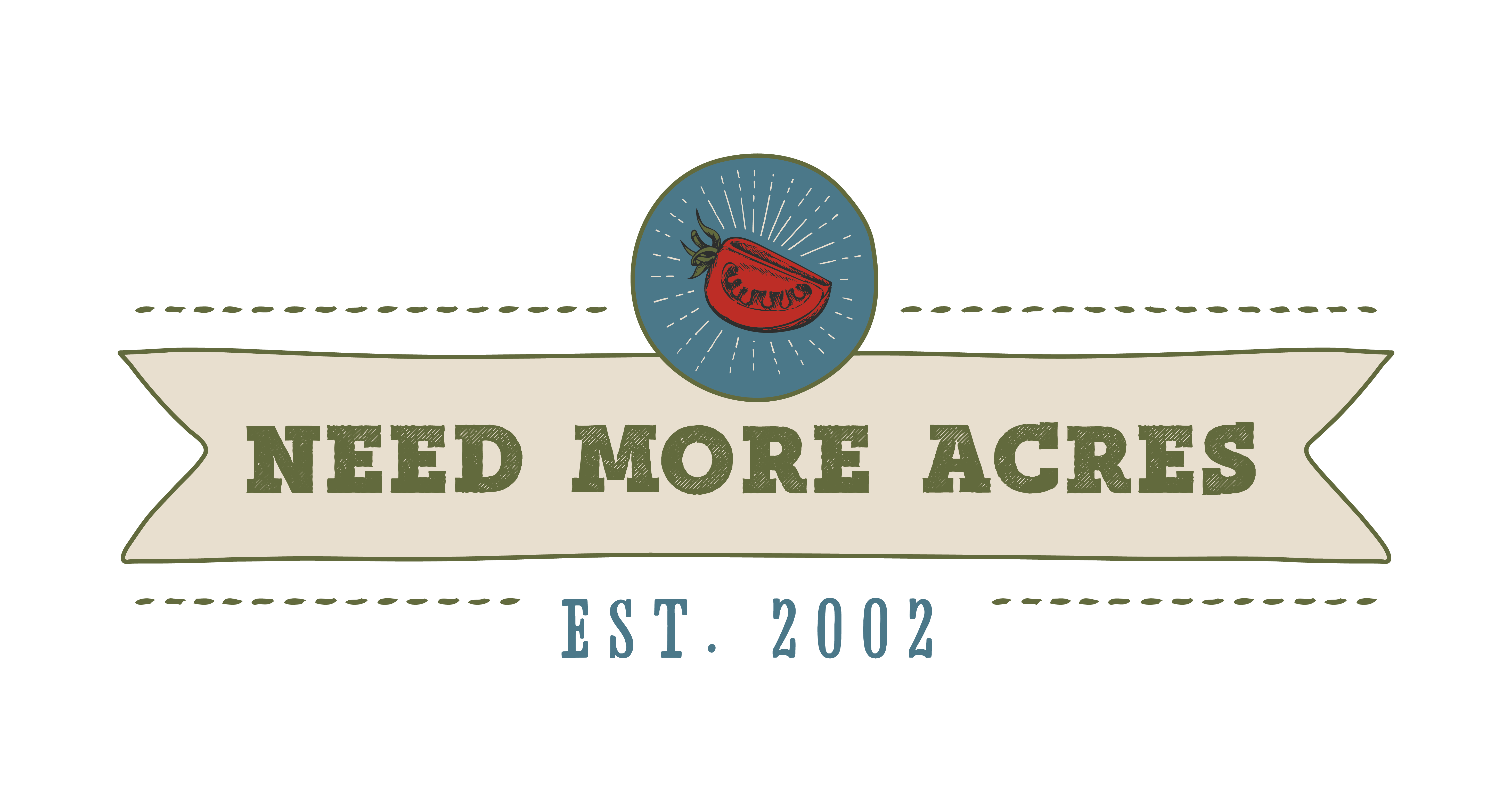So, here we are-farming full time-finally on more acres. The last three years (and really longer-if you count the years before we had the nerve to say “yes”) have been a whirlwind full of long nights, more work than our bodies could sustain at times, loss of parents, children growing older by the day, changes in the community around us, opportunities, hurts, freedom, resurrection-over and over again.
To be honest-we must always choose to allow ourselves plenty of time to reconnect and focus on what brought us here in the first place.
It wasn’t money. It wasn’t power. It wasn’t success.
The very first step that we took towards our work within the local food system was a small one in the direction of a voice. We both heard it on the same day. Nathan was at work educating people on another farm and I was in our living room taking care of little one’s. On that day we both heard God in a very clear voice say, “I want you to farm-it will be okay.” There have only been a few times when Nathan and I both hear the voice of God at the same time, but when we do we are both reminded of his love for us and the reality that we weren’t created simply to serve ourselves. There’s freedom in that.
That first step was met by many more in preparation for the opportunity to help start Community Farmers Market alongside other farmers, makers and community leaders. Nathan with his focus on what it really takes to physically and financially sustain a farm long term and me with a passion for helping everyone in our community increase their access to fresh food and find connection to the people around them while doing it. At the time we never intended our work at the market to help us personally on our own farm-it was simply using our gifts and abilities to help others while doing for ourselves. Thankfully, as it often does the giving of good comes right back to you.

“Economics (from oikonomia, “household management”) is about the material provisioning of society; chrematistics is about individuals amassing abstract wealth in the form of money, and has no necessary connection with the material well-being of society, that is, with the production of real goods and services.” Wendell Berry
For us that has meant redefining our household economy to not only include our income and expenses, but also our personal lives, sense of equality, the needs of our children, the way we can serve those around us, and how our efforts might always help others who want to follow their own path towards their own great economy. Berry’s idea of creating a narrow circle describes it well:
“Indeed, within the Kingdom of God, the Great Economy, we must build “little economies” by which “we can carve out a narrow circle within which things are manageable by the use of our wits.” These little economies originate, manage, and distribute the secondary values that human work and wit can add to the primary values of the Great Economy.” -Berry
From the beginning we made the decision to start each year with creating a budget of how much we could live on and keep doing the work we were called to do. Having lived several years-early on in our marriage-on a VERY tight budget this made the process easier to accomplish. Once we have that dollar amount we then determine how many customers we can serve here on our farm. Our Community Supported Agriculture program (CSA) allows us to create a steady, weekly income flow that then allows us to focus on the other areas of our household economy.
One of the things that makes the least sense to people is our sensitivity to taking only what is ours within the local marketplace. This can be a difficult thing to do as we are always trying to look at the local food system (and it’s barriers) from a community level. We not only enjoy, but know it’s right to serve HOTEL INC, School Systems, restaurants like HOME Cafe & Marketplace, The Fatted Calf with consistent deliveries because it helps grow the food system. In order to do so while allowing ourselves to practice the “law of return” we make commitments to use the extra funds to create opportunity for others through on farm/prepared food job creation, outreach efforts, helping our neighbors, and food access. This way of living does not fall into the chrematistic way of living, but that’s not where we want our family to fall-so it works.
Nathan prefers Berry’s poetry over what he calls the “how to” books on peace and faith. And while he intends no disrespect to Berry himself he has been known to say, “Here’s the short version. Just do it-because it’s the right thing to do” on more than one occasion.
One might think it easier to simply serve yourself through hard work and minding your own business-actually lots of folks do-I know this because they tell me so! But for Nathan and I-who in the hard times have tried to live that way-know that it really isn’t easier. Deep down we all know the truth.
I know when my work begins to serve just a few. In fact, one of my favorite mantra’s to use when I begin feeling that way is, “you can’t walk around only blessing blessed people”. I mean-you can-but that wouldn’t be doing the right thing. There’s this funny thing about the way our society thinks and how it responds to good work. One who is doing the right thing seems mostly unassuming at first. Then these efforts start to grow and attract more attention. People who were taught to live by competitiveness and minding their own and getting a leg up by knocking everyone else down-become attracted to your work. The principles that the thing was created on begin to be replaced with the price of return. They want a piece of it. And slowly-over time-there’s very little of the good left. I used to think that I wasn’t being “good” to acknowledge and speak of these things, but now I realize that ignoring them only allows those who are already suffering and being held down to be swallowed up whole.
This is the hardest part of trying to live within the Great Economy. The bullies and competitive folks do anything they can to turn the focus off the whole and in so doing create winners and losers. Nathan and I-on the hard days (when we are tired, overworked, afraid, abandoned, left empty) have wanted to cash it all in and become a winner. It’s easier to be a winner, but there it would be-in the back of your mind-when you lay down at night, or rock your babies, or listen to the voice of God. You would remember that the only way to win is lose. You’d be reminded to stop thinking about yourself-because that only brings loneliness, fear, depression.
So while it’s oftentimes easier to focus on the successful, trendy new thing you take the time to make outreach a priority. When the white owners of your historic home have an amazing story and their picture on the wall you take the time to recognize the black families that lived here too. When groups start to divide themselves into “the cool kids” and everyone else-you remove yourself even if it means you are alone. This doesn’t mean that you can do everything for everyone, but it does mean that you listen to the voice and choose to do what’s right-as often as humanly possible. It’s not easy and it’s especially not often accepted. Except by a few-and when you take the time to look around you will realize that those are the few that belong in your narrow circle-right where you began.

We make the commitment to work as hard as we can to grow good food 52 weeks a year. We commit to our customers that we will harvest as much of that food for them each week. We make ourselves available to them on our farm because we love them. In return, they make the commitment to eat our food. While they can “take it all” they are honest and fair and take “just enough”. They support our work by the exchange of funds that help us meet the needs of our household economy. It’s imperfectly perfect.
This way of living reminds Nathan about life on a mid sized farm in Hart County, Kentucky. On a few occasions someone has asked him about it and I could just sit for hours as he reminisces of his young life in a small town. His family grew corn and tobacco and cows. It was the tobacco that he remembers the most. Working hard together among family and friends. Gathering together as a community at the wholesale auction house. Supporting the then thriving downtown businesses by celebrating their sales with meals eaten out and shopping for yearly essentials While we know that tobacco wasn’t the solution for Kentucky families and we are realistic that local food isn’t the solution for everyone either-we are thankful to be able to wake up every day-surrounded by our family and friends-so that we can work hard and hopefully hear the voice that calls us to the Kingdom of God (Great Economy).


